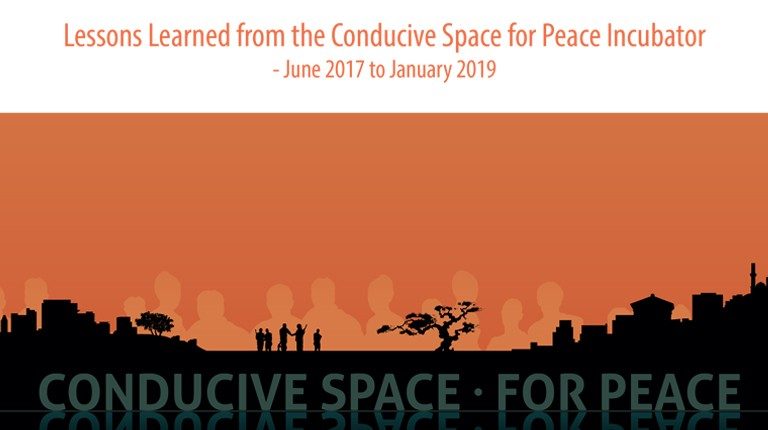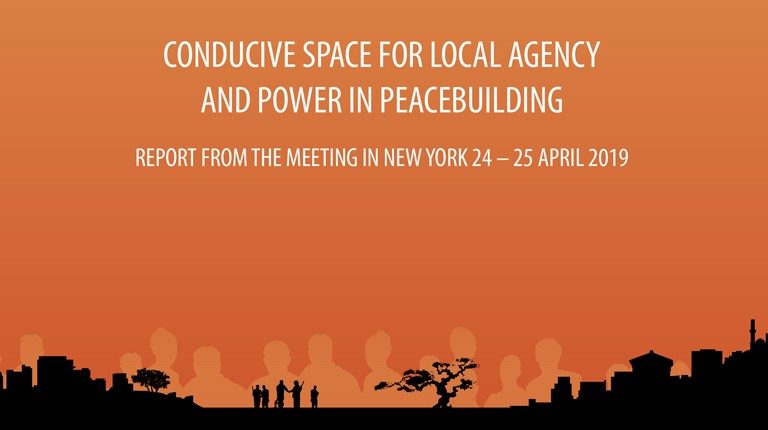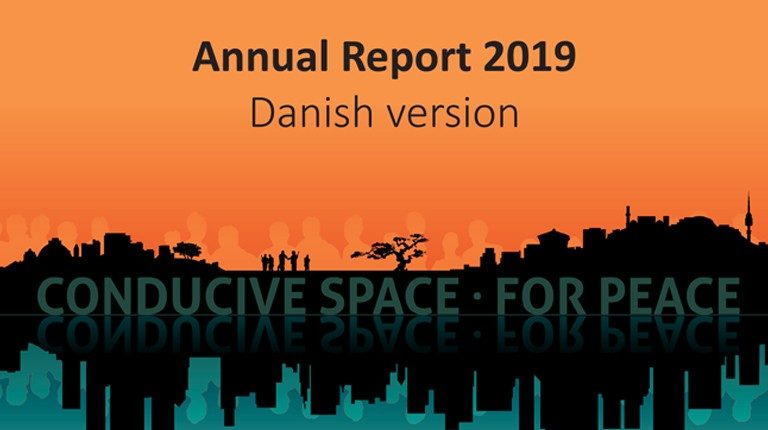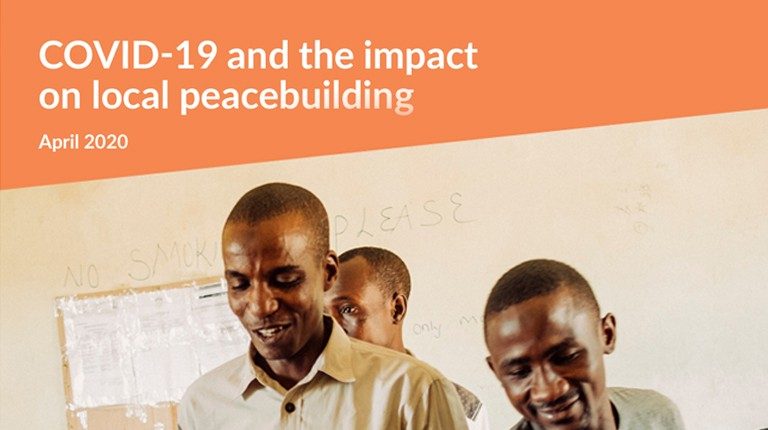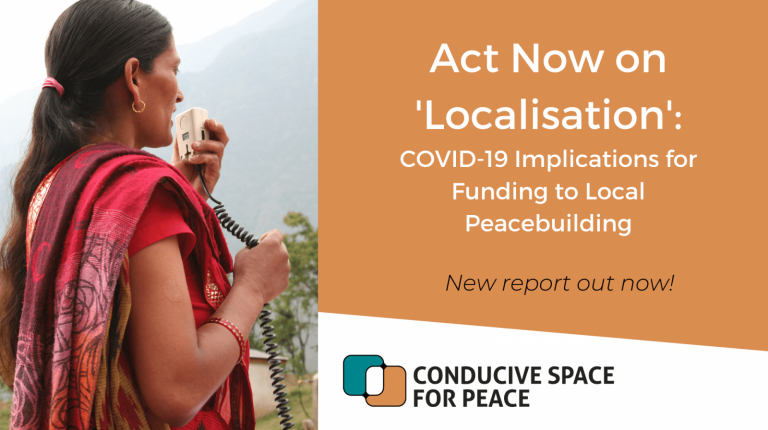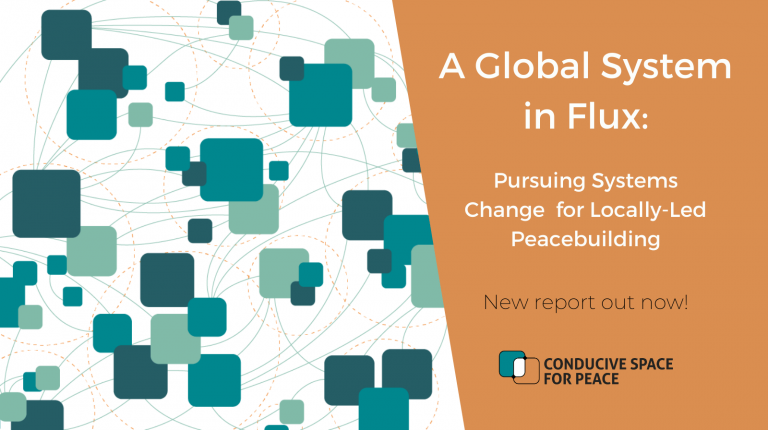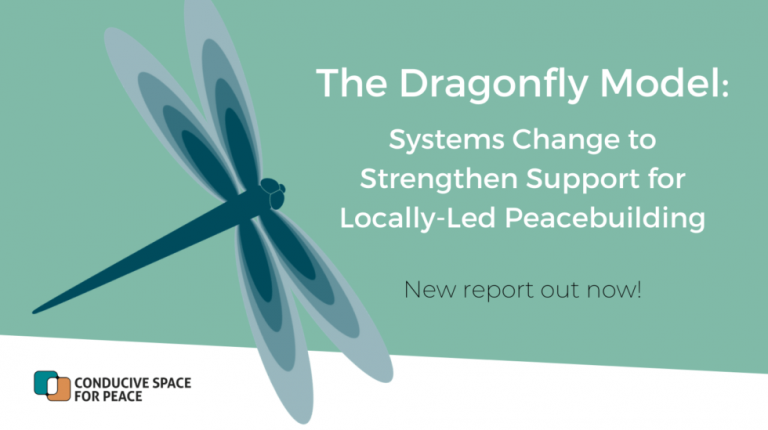Chain of Influence Framework for Systems Change – Shifting Power to Local Actors
Enhancing international support to local civil society organisations in conflict-affected contexts is increasingly recognised as critical to sustainable peacebuilding. Currently, too little peacebuilding and development funds reach local actors, and strengthening the quality of support can enable space for local leadership. The shorter-term, top-down, and externally driven engagements have not created the desired results for sustainable conflict prevention, peacebuilding, and development. Therefore, Conducive Space for Peace has since 2016 been developing thinking on and action for systems change to enable space for locally-led peacebuilding and development better. With our new publication, Chain of Influence Framework for Systems Change – Shifting Power to Local Actors, we offer a new way of understanding systems change that can strengthen international organisations to support local civil society actors.
The Chain of Influence Framework traces the complex journey of funding, power, and influence across the development and peacebuilding system, from bilateral donors to United Nations (UN) organisations or INGOs and national and local civil society actors. There are numerous variations in chains of influence such that they may also include private foundations, other multilateral organisations, state agencies in conflict-affected countries, consultancies, and other actors. The Chain of Influence Framework is not one-directional or one-dimensional, nor linear. Rather, the framework operates in a complex system where each actor is positioned at nodes in a series of complex chains of influence. However, the predominant chain of influence that impacts support to local actors engaged in development and peacebuilding is characterised by a high degree of hierarchy and top-down power dynamics. However, if we reverse the chains, there is scope for a more effective system to emerge. With this publication, we offer a way for all international organisations and actors within these organisations to explore how they can change their organisations to create space for local leadership more effectively. The Chain of Influence Framework highlights avenues for international organisations to pursue change within and between international organisations to enable a more conducive space for local leadership and thus contribute to more sustainable peacebuilding and development.
An example of how funding and power travel through the international system through a chain of influence: A project manager in a conflict-affected context introduces an innovative local accountability mechanism with local leaders. The project manager soon finds that the MEL (monitoring, evaluation & learning) person at the country office is not equally excited about the new way of working. How will they report to donors in a way that shows progress according to the agreed results framework? The country director is also concerned as new funding opportunities may be lost. If partner organisations shift their attention to other areas of work that align with donor priorities, what happens? The implication is that continued funding to the partners becomes more challenging than before introducing the local accountability mechanism. This example shows how the Chain of Influence Framework can shed light on systems challenges and why innovative practices in specific funding mechanisms and accountability practices are challenging to translate into broader systems transformation. A comprehensive approach to change is needed where each person within an international organisation must ‘look up’ and ask the person at the next level to change what is required. But it also takes leaders who are willing to move the international systems in this direction.
This publication is primarily for change agents working at bilateral donor agencies, private foundations, multilateral organisations, INGOs, and other international organisations interested in capitalising on their positions of power in the system of support to local actors in conflict-affected context enhance local leadership and equitable partnership. The publication aims to prompt reflection and action on the part of decision-makers and decision-making bodies at these organisations. Finally, we hope it is a useful framework and inspiration for those engaged in systems change, shifting power to local actors, and decolonising aid.
Share this on |


